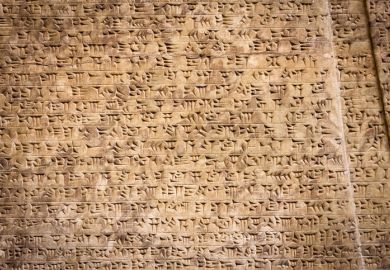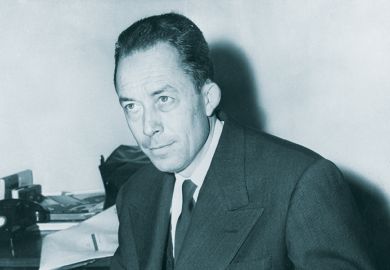Although, as Martin Taylor points out in his excellent substantial introduction to this book, Edmund Blunden wrote more about the first world war, and spent more time at the front, than any of the more "canonised" war poets, this is nevertheless the first edition of his poetry relating to the war. It appeared in his centenary year, 1996, and is a fine achievement, thanks to Taylor's combination of meticulous scholarship and special expertise - he spent most of his career at the Imperial War Museum and died untimely just after finishing work on this volume.
Blunden wrote in 1971, "my experiences in the first world war have haunted me all my life and for many days I have, it seemed, lived in that world rather than in this". Taylor's presentation, in order of date of composition, of some 170 poems written between 1914 and 1966 amply and movingly demonstrates this "war-hauntedness" in Blunden's work, his struggles to cope with survivor's guilt ("Why slept I not in Flanders clay / With all the murdered men?"), and with what Taylor calls the "special pain" that, as an essentially pastoral poet Blunden had to endure, his "ironic inability to enjoy the scenes that comforted him in war now they have returned to their peaceful state". This "harmless young shepherd in a soldier's coat", to quote Blunden's famous self-description, found himself, in May 1916, forced to become "a poet of the shell-holes, of ruin and mortification" but, Taylor observes, what he did was to adapt his pastoral poetry to these horrifying new conditions rather than to adopt a completely new style and technique, as happened with poets like Sassoon and Owen.
Blunden did not allow himself to be "seduced into a savagery he could not have sustained". Much of his poetry poignantly records the effect of war on what he calls in "Third Ypres" "a whole sweet countryside amuck with murder" but he is also greatly concerned lovingly to commemorate his dead comrades, both those killed at the front and those whose war-deaths were only postponed as in "A.G.A.V.", one of the poems Blunden appended to Undertones of War (1928).
A most valuable feature of this edition is Taylor's inclusion of all Blunden's post-publication handwritten annotations to poems, made in 1929 and 1954: against "A.G.A.V." he wrote, "Shot himself in a fit of despair, 1924, after long mental misery ... Vidler had been badly wounded, and could not endure many years after though always full of friendship and humour."
The verse appendix to Undertones is fully and illuminatingly discussed by Taylor who finds in these poems "more variety of form and style ... than in the entire corpus of most war poets." Another notable aspect of his introduction is the sensitive and sympathetic way in which he deals with those poems of the later 1930s such as "Exorcised", written in October 1938 to celebrate the Munich agreement, in which Blunden's sheer horror of war made him appear pro-German (bizarrely enough, he was under police surveillance as a suspected Nazi sympathiser at the outbreak of the second world war).
Taylor's whole edition, which concludes with a reprinting of a 1933 essay by Blunden entitled "A battalion history" (the 11th Royal Sussex), is greatly to be welcomed, the more especially since so little of Blunden's work, apart from Undertones, is in print.
Michael Slater is professor of Victorian literature, Birkbeck College, University of London.
Overtones of War
Author - Edmund Blunden
Editor - Martin Taylor
ISBN - 0 7156 39 2
Publisher - Duckworth
Price - £16.95
Pages - 232
Register to continue
Why register?
- Registration is free and only takes a moment
- Once registered, you can read 3 articles a month
- Sign up for our newsletter
Subscribe
Or subscribe for unlimited access to:
- Unlimited access to news, views, insights & reviews
- Digital editions
- Digital access to THE’s university and college rankings analysis
Already registered or a current subscriber? Login



